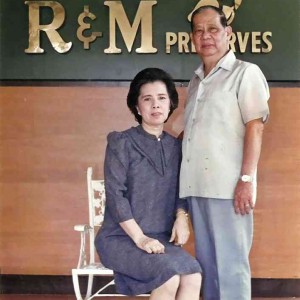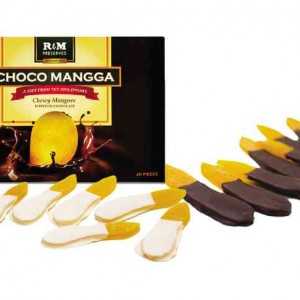It’s been said that the early bird catches the worm, but sometimes the second mouse gets the cheese. In business, as in any other race, there are risks with being first.
For one, those who seek the rewards of fulfillment and success as pioneers must learn to deal with copycats.
When a product becomes successful, copycats can skip the initial hit-and-miss in development and can improve on it. Worse, poorly made copies can give the original products a bad reputation, but that is why innovators must build a brand—something clients can identify and trust as the real thing.
“We always innovate to get a step ahead of copycats and we keep on expanding our reach. We are always looking for new customers while keeping our existing ones happy with consistent quality,” says Erwin Richard T. Siao, whose parents pioneered making and selling dried mangoes that Japanese, Koreans and most foreign buyers are crazy for, not to mention a lot of locals.
R&M Preserves started in 1970 with dried mango and has since expanded to making dried pineapple, dried papaya, dried jackfruit and dried lemon (kalamansi), along with its varied
range of tropical juices, mango juice concentrates and mango puree.
From its early days as a small business that started the dried mango craze, R&M is still filled with the pioneering spirit, but is also looking ahead.
The company’s latest innovation, R&M’s Choco Mangga, has taken the humble dried mango to a new level. Choco Mangga is made of chewy mango strips half-covered in velvety chocolate.
The product, which comes in dark and white chocolate variants, is the only brand of its class to have received the Golden Shell Award, according to Erwin Richard’s better half, Frances Marguerite M. Siao. Another product paired with chocolate is the dried pineapple, which is also being snapped up as another sweet treat from the Philippines.
Looking ahead, the Siaos are educating their children about the business and training them to value their blessings. “We tell them about how our parents started the business, the hardships they went through. We expose them to work in various aspects of the business,” Siao says.
“I’ve heard my children say, why should I buy a cup of that coffee when it costs as much as my daily salary?” Siao says.
Along with the work comes family bonding to balance the hardworking attitude that permeates their daily lives. “It’s important to keep bonding as a family. We have cocktails with our more grown-up children; we’re cool parents. We’d rather they first experience it with us than with others. During holidays like Christmas and New Year, we usually spend it together abroad so that we can really bond and spend time together,” Siao says.
There is still a long way to go before passing on the torch, and even when that time comes it will be up to the young ones to decide who would help carry on with the business. “We hope they will help keep it up but we just expose them, we will not force them. Whoever wants to get more involved, in the end it’s really up to them,” Siao says.



